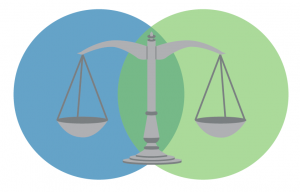What Ethics Is Not (Part 1)
Post by
Capsim
April 16, 2018
April 16, 2018

There is a natural tendency to overlay our wants, needs and beliefs on an ethical issue, only to obfuscate the facts and undermine an ethical line of reasoning. Claire André and Manuel Velasquez review these misconceptions in their article, “What is Ethics?” which contributes to the summary here.
- Ethics is not based on whether we feel something is right or wrong. Sometimes, our feelings signal to us that we are facing an ethical dilemma, and we want to “do the right thing,” but feelings also may prevent us from behaving ethically, perhaps out of fear or conflicting desires.
- Ethics is also not solely the purview of a religion or religious beliefs. Although most religions incorporate an ethical code of conduct into their belief system, religious faith is not required to be ethical and ethical principles apply to everyone regardless of religious affiliation.
- Being ethical does not always entail abiding by the letter of the law, although most laws articulate ethical standards generally accepted by the citizenry. Martin Luther King, Jr. employed nonviolent civil disobedience in the 1950’s and 1960’s to defy discriminatory, segregationist legislation and advance the cause of civil rights in the United States. King patterned his actions on the social protest movement Ghandi led in South Africa in the 1890’s.
There are many more misconceptions André and Velasquez review, and we will turn to these in our next entry. You can explore these misconceptions while learning how to effectively develop ethical decision-making skills in your student by accessing your free eBook – Assessing and Developing Ethical Decision-Making Skills.



.png?width=80&name=1-questions%20(1).png)